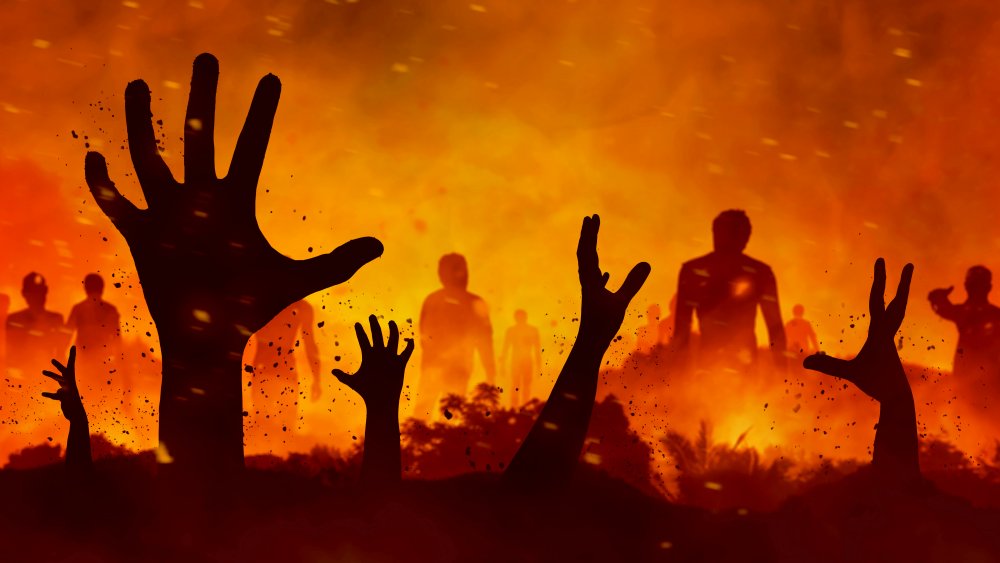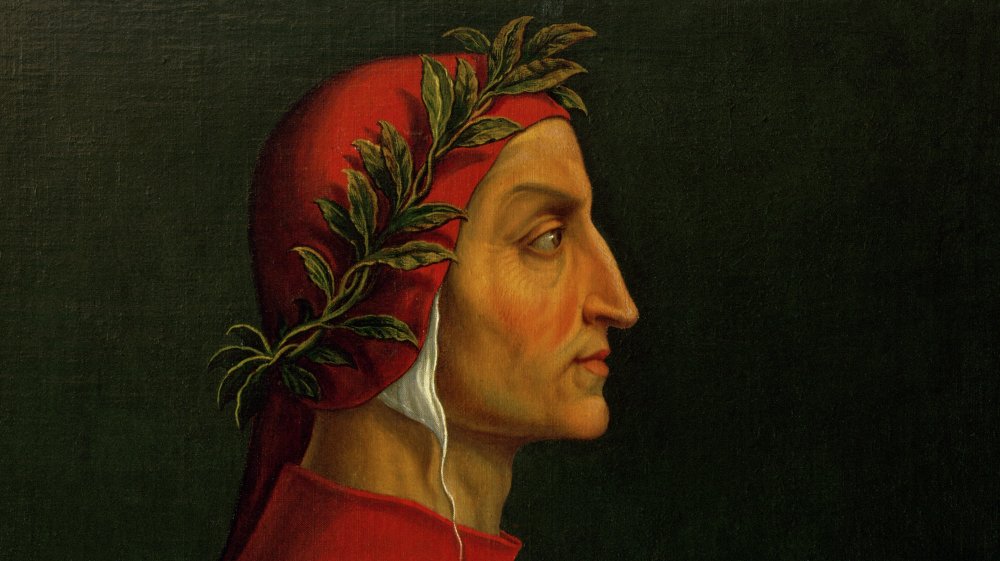The Untold Truth Of Dante's Inferno
If you squint your eyes and think really hard, you'll probably be able to think of a few dozen times and places that were more pleasant than Florence, 700 years ago. Europe as a whole, honestly, was in a centuries-long rut: Church and state, very much on the opposite end of the spectrum from "separated," fought for political control, and betting on the wrong metaphorical horse had dire consequences.
Around 1302, Dante Alighieri found himself out of favor, according to the Independent, after backing a faction known as the Whites, whose philosophies skewed toward political independence from the Catholic Church. Backed by Pope Boniface VIII, the Blacks had him exiled from his home, considering him an influential and persuasive voice for the opposition. It's not a coincidence that Dante's Inferno saw Pope Boniface confined to the eighth circle of Hell, held face-down in a stone tube, his feet engulfed with flames the heat of which was proportional to his sins.
The Pope wasn't alone, either. Authors can be strange people, and thus Dante's rivals show up over and over in the poem, facing tortures from creepy demons that remain pants-wettingly terrifying to this day. It's fascinating to consider the Divine Comedy, and especially Inferno, for what it really was — not just an allegory for the transcendence of the human soul and the rejection of sin, but also, a 14th century Quentin Tarantino revenge fantasy.
See you in Hell
As Dante and Virgil traverse the circles of Hell, a singular theme solidifies itself: Dante had a Mean Girls Burn Book. Kind of literally.
In the fifth circle, Dante describes Filippo Argenti, a real-world member of the political faction that ousted Alighieri from Florence. Filippo is seen neck-deep in the River Styx, and scholars have noted that the usually penitence-based and thoughtful tone of the story takes a quick detour at this point. Rather than considering the plight of a tortured soul, Dante essentially says "it'd be fun to dunk him" and Virgil, to paraphrase, replies "right?" Filippo, then, is torn to pieces. At times, Dante didn't even wait for his enemies to die before subjecting them to damnation. Branca d'Oria, who wouldn't pass away until 1325, is spotted in the ninth circle of Hell despite the fact that the story takes place in 1300. d'Oria, who basically set up his own Red Wedding IRL, is said to be so sinful that his soul was taken before he died. A demon, Dante says, took over the man's body, while his eternal spirit laid face-up in ice, his tears freezing into crystals in his eyes.
Another Pope, this time Nicholas, gets the same foot treatment as Boniface. Dante's old teacher Brunetto Latini is spotted in the flaming desert of the seventh circle reserved for sodomites. Pietro Della Vigna, described by Britannica as a minister to Frederick II, spends eternity as a gnarled tree.
Poets have issues, man.

